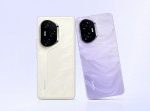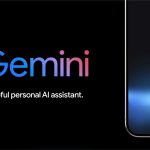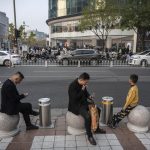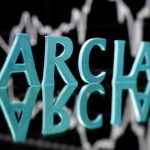It came as nine new COVID-19 cases emerged in NSW and two new infections were found in Queensland, and Greg Hunt revealed how a vaccine will be delivered in Australia.NSW recorded nine new cases overnight, with seven linked to the Northern Beaches cluster.There were 60,000 people who came forward to be tested over the past 24 hours.Two new COVID-19 cases have also found in Queensland — one involving a woman in her 20s who arrived in Cairns on a superyacht that sailed from the Maldives. She is in isolation. The six crew members have remained on the yacht and are being tested.The other is a man who returned from the Northern Beaches. The man in his 40s initially tested negative but since tested positive. He has had no contact with the community except close contact with relatives. The seven cases linked to the Avalon cluster brings the total number of cases to 104.Six cases are still under investigation in NSW, including two people who are employed as patient-transport workers.Dr Kerry Chant said all people on-board a Qantas flight from Darwin to Sydney on December 17 have been considered close contacts to a passenger with COVID-19 and have been asked to self-isolate.
A Qantas crew member contracted COVID-19 who was on-board the flight subsequently tested positive. She said they are investigating another potential case but the current data is preliminary. Everyone who was on-board will be tested.She said the passenger on the Darwin-Sydney Qantas flight is a South Australia resident who initially tested negative in NSW.“We’re just trying to work at the nature of that test result whether it is a false positive or it is an old infection, it is very scant information,” she said. Victorians have also been advised to not “hug and kiss” anyone from NSW.Victoria’s COVID testing program commander Jeroen Weimar asked people to show some discretion in their Christmas cuddling.
“If you’ve been to NSW in the last 10 days or you’re spending time with people you know have come back from NSW, I would encourage you – let’s not hug and kiss right this moment in time,” he said.It comes as it was revealed the COVID-19 vaccine will be trucked around Australia in “super eskies with dry ice” but there will be no shortcuts to getting Aussies the jab, the Health Minister warns. The federal government has signed a distribution deal with DHL and Linfox to assist the rollout of more than 117 million vaccine doses. Health Minister Greg Hunt said “super eskies”, purpose-built dry ice containers, would be used to transport the Pfizer vaccine at -70C. The Therapeutic Goods Association (TGA) is expected to green-light a vaccine in January, with Australians to receive their first jabs in March.The UK and US have both issued emergency approvals for the Pfizer COVID-19 vaccine as they face spiralling outbreaks. The US recorded 3401 coronavirus deaths on Wednesday, while 744 Britons lost their lives. But with Australia having the virus under relative control, Mr Hunt insisted there was no need for it to follow suit.“The public doesn’t want to see corners cut. They want to see that we are thoroughly assessing, but we’re doing it at a record speed in an utterly comprehensive way,” he told 2GB Radio on Thursday. The two-dose vaccine would be rolled out in monthly rounds, the first focusing on the elderly, health workers and medical workers. Subsequent rounds would work down the age groups, as young people were less likely to suffer severe impacts from the virus, with the process expected to be completed by October, Mr Hunt said.“Here we are likely to get a higher take-up of the vaccine than in many other countries because we are a great vaccination nation. But we are because people have complete confidence in the world class leadership and quality of our medical regulator,” he said.QANTAS PLAN TO SAVE TRAVEL Qantas and Japan Airlines want to form a partnership that will see the two airlines co-ordinate schedules and airfares, and share revenue in a deal that will lock up 70 per cent of the travel market between the two countries.Qantas CEO Alan Joyce said the joint venture would open up new routes between Australia and Japan and boost travel between the two countries – which was surging in both directions beforethe pandemic – hit back faster when international borders reopen.But the deal, which was announced yesterday, will come under close scrutiny from the Australian Competition and Consumer Commission, due to the fact that there was only one other airline group flying directly between the two countries.Qantas and its cheaper arm Jetstar had an almost 60 per cent share of the Australia-Japan market in 2019, while Japan Airlines (JAL) had 10 per cent. All Nippon Airways (ANA) had an 8 per cent share.
But in its application to the ACCC, Qantas argued that Virgin has said it intends to eventually fly to Japan, while ANA was a “particularly aggressive and effective competitor”.Qantas also argued that Singapore Airlines and Cathay Pacific would also compete in the market.“The [joint venture] is inherently geared to maximise consumer interest,” the submission says. “It will deliver greater public benefits faster and with more certainty than a future without it, in an intensely competitive market.”Qantas said the venture would encourage the two airlines to “expand rather than restrict capacity and to invest in an improved product offering which is likely to stimulate innovation and price competition from others”.
Qantas said it expected the ACCC to make a decision within six months and that the joint venture could start around July 2021 when it expects international travel will resume.Mr Joyce said that if approved, the joint venture would be a “win for our customers, a win for trade and a win for the one million people who work in tourism across Australia”.“Around half a million people visited Australia from Japan in 2019. We want to see that tourism resume and grow even further by making it easier for Japanese travellers to visit,” Mr Joyce said.“It also helps us diversify our portfolio of joint businesses among Australia’s key trading partners.”
CHRISTMAS TOURISM BLOWMeanwhile, tourism spending over the holidays will come close to halving due to border restrictions states imposed on NSW after a COVID-19 outbreak on the northern beaches, the tourism and aviation industries have cautioned.Between Christmas Eve and January 11, Australians are expected to spend $2.98bn less than the annual average of about $5.5bn, as families put holiday plans on hold and airlines cancel dozens of flights a day in response to travel restrictions. The modelling was compiled by economic consultants at Stafford Strategy and commissioned by the Tourism and Transport Forum, which represents the country’s major hotel chains, airlines and tourist attractions, reports The Australian.
Margy Osmond, the forum’s chief executive, said border restrictions meant the Morrison government would need to “think very seriously about something that looks and sounds like an extension of JobKeeper” for the industry.It comes as the worsening stoush between Gladys Berejiklian and Annastacia Palaszczuk went up a notch after the NSW Premier on Tuesday accused other state leaders of causing unnecessary “suffering” by shutting borders despite the low number of new coronavirus cases linked to the northern beaches cluster.On Wednesday, the Queensland Premier said it was “a bit rich” for Ms Berejiklian to point the finger at Queensland and Victoria for the border closures. “If there hadn’t been the cluster outbreak in the northern beaches, no one would have had to take these measures and everybody would have been seeing their family and friends,” Ms Palaszczuk said.
She also said that her state didn’t want “lifestyle compromised”.“If we had community transmission like they’ve got in Sydney, that could have broader implications across our tourism sector,” she said. “I don’t want to see the Gold Coast, Cairns or the Whitsundays go into lockdowns that we are seeing in other parts of the world.”There were eight new locally acquired cases recorded in NSW in the 24 hours to 8pm on Tuesday. Health authorities eased restrictions in the southern half of the northern beaches, allowing people to leave home to visit the homes of others who lived in the zone.Despite the lower infection numbers, Queensland and the ACT have indicated there will be no change to their border restrictions until after New Year’s Eve.
NED-1859 State of our borders
SYDNEY’S COVID CHRISTMAS REVEALEDSydneysiders will be allowed to have Christmas with up to 10 family and friends at home under new coronavirus restrictions announced on Tuesday.NSW Premier Gladys Berejiklian announced “modest changes” to Sydney’s coronavirus restrictions over the Christmas period.From Christmas Eve until Boxing Day residents in greater Sydney will be able to have 10 people over to their home plus children aged under 12.After Boxing Day the restrictions will revert back to 10 people in a home including children under 12.Residents in the northern region of the northern beaches can have five other people from the same region in their homes.Residents in the southern region of the northern beaches will be able to have 10 people in their homes. They cannot leave the area but people will be able to visit from greater Sydney.Ms Berejiklian said on December 27 the restrictions would revert back to the current lockdown provisions.Ms Berejiklian said the decision facing her was such a difficult one with Christmas just days away.“If it wasn’t this time of year, the decision would be much easier,” she said.“It’s not just to look at the health impacts, but societal impacts, what it means for the greater population.“You have to assess the medical risk against the risk of other things that will harm the community.”
It came as NSW health authorities recorded eight new cases of community transmission in the past 24 hours, as the state eagerly awaits details of how they’ll be allowed to spend Christmas.Ms Berejiklian previously took aim at state premiers ahead of a national cabinet meeting to decide on whether to lift Sydney restrictions in time for Christmas.
NED-2821-Covid-Xmas
The premier is angry other states were quick to shut their borders amid the Northern Beaches cluster, leaving NSW to carry the bulk of the nation’s hotel quarantine program.“We know the infection rates are going up overseas,” the Premier said. “We don’t stand here and tell you how many were Queenslanders or Victorians. I do feel NSW has done more than its fair share and I ask other states to do the same and I look forward to other states stepping up.“There are parts of NSW completely unaffected by this current outbreak and yet everybody in NSW is suffering because other state leaders made decisions.”But with a low number of new coronavirus cases linked to the city’s Northern Beaches outbreak on Tuesday, some senior NSW government officials are pushing for restrictions to be eased ahead of Christmas unless there is a significant rise in infections announced on Wednesday.
NED-2961-NSW-Restrictions-Ramp-Up
‘SYDNEY IS RIGHT ON THE EDGE’The NSW Government may regret not enforcing a short sharp lockdown in response to the latest COVID outbreak and its citizens might end up paying for delayed action with a long lockdown similar to Victoria’s, The Australian Medical Association’s vice president Dr Chris Moy has warned.“It’s fair to say that the situation in Sydney is right on the edge in Christmas,” Dr Moy told News Corp.“On the plus side is great contact tracing, that QR codes have helped, and that most cases are linked and localised to Northern Beaches, and no one is turning in hospital up really sick from COVID,” he said. However he warned “gaping holes in information regarding the initial source of the infection” and the possibility that there are other chains of infection propagating unchecked now was deeply concerning.The border closures by other states is an indication of their level of worry, and it is likely that states such as SA would have gone for a quick lockdown as they did recently and which proved effective, he said.“This “hard and fast” or “pay now” approach worked in SA in contrast to the lesson of Victoria which “paid later” in that the failure early decisive action cost them a prolonged lockdown,” he said.“One remains hopeful that the better systems in NSW will work, but there is some chance that control will be lost across greater Sydney and there will be Christmas regrets about not making a more decisive call,” he said.
It comes as Prime Minister Scott Morrison warned COVID-19 outbreaks will “continue to occur”, as he urged those who had been to Sydney’s Northern Beaches recently to isolate no matter where they are in Australia.“The outbreaks are things that are going to continue to occur and while great care is taken all around the country, then we can never fully rule out that an outbreak might occur at some point in time,” Mr Morrison said.“In this case [the case of the Northern Beaches outbreak], what we are seeing is both great co-operation, as we have seen in other places before, but the geography I have to tell you is helping this as well. “Those of you who know Sydney well know that the peninsula is a very cohesive community that tends to keep to itself … and that is certainly I think assisting in making sure that the Avalon [in the Northern Beaches] outbreak is staying exactly where it is.”Mr Morrison said no matter where people were in the country, the “rules about isolation apply equally to you as they do to those of your neighbours who are back in Avalon and the Northern Beaches right now”.OUTRAGE AT FAKE DETAILS FOR CONTACT TRACINGNSW Health Minister Brad Hazzard slammed those recording fake contact details on QR code forms.“What we are finding is that some of the visitors to various venues still think that it is funny to be caught putting in there that you’re Donald Duck or Mickey Mouse or a false phone number,” Mr Hazzard said.“That must stop. This is a worldwide COVID pandemic. And thinking it’s smart to call yourself Donald Duck or Mickey Mouse is about as stupid as it gets.”Ms Berejiklian said it was vital that all venues had QR codes in place, or at the very least, “really good record keeping”.
“We’re asking everybody … do not let anyone physically into your premises … do not let anyone into your door unless you have a good record of what time people came in and what time they left,” she said.“Otherwise, Health [contact tracers] can’t do their job and we risk Christmas and the New Year period if we don’t do the right thing.”
NED-2826-Australias-Vaccine-Rollout
BORDER RULES AND TRAVEL RESTRICTIONSNSWThe number of visitors allowed in a place of residence is limited to 10 people. The total number of visitors includes adults and children.
Christmas period restrictions:
*Thursday 24 December*Friday 25 December *Saturday 26 DecemberWhile the current restrictions remain in place, special provisions have been made for when people visit each other at home.During the Christmas period, there is a daily limit of 10 visitors to your home.Any children who are aged 12 years and under will not be counted in the daily maximum of 10 people who can visit a home. From Sunday 27 December, visitor limits at home will return to a maximum of 10 visitors including children.
Outdoor public gatherings
The new restrictions for Greater Sydney, Central Coast and Wollongong do not affect the existing rules for outdoor public gatherings which are:*No more than 100 people can gather outside in a public place which includes public parks, reserves, beaches, public gardens and spaces.*A public gathering means a meeting or assembly of persons for a common purpose in a public place*People attending to assist in an emergency do not count towards the limit.
Holiday homes and short-term rentals
*A maximum of 10 people are permitted in holiday homes and short-term rentals unless everyone is from the same household. *However, for premises that had already been rented out to more than 10 people before Monday 21 December, the people can continue to stay there.*During the Christmas period, any children who are aged 12 years and under will not be counted in the 10 people limit.
Number of people allowed at a venue
*Capacity requirements for venues have been tightened to 1 person per 4 square metres in indoor areas.*A maximum of 300 people, subject to the 1 person per 4 square metres rule applies for each separate area of hospitality venues and places of public worship.
Indoor religious services
*Religious services held indoors are limited to a maximum of 300 people, subject to the 1 person per 4 square metres rule.
Dancing and singing
*Singing in indoor venues is restricted, returning to a maximum of 5 performers indoors, provided they are 1.5 metres from one another and performers are at a distance of least 5 metres from the audience, who are not allowed to sing along.*Dance floors will not be permitted, except for weddings, where a maximum of 20 people from the bridal party will be permitted.The restrictions apply to all of the suburbs covered by these Local Government Areas in Greater Sydney, Central Coast and Wollongong area.
Face masks
*Face masks are not mandatory, but strongly encouraged on public transport and in indoor areas like shopping centres.VICTORIAVictoria closed its border to Greater Sydney, Northern Beaches and the Central Coast.If people from those areas who are not Victorians enter the state they will be placed into 14 days of mandatory hotel quarantine.Victorians are being told not to travel to Sydney. If they do, they will have to enter mandatory hotel quarantine for two weeks. A “traffic light” system of three different zones now exists where those from the Northern Beaches are in the “red zone”, and cannot enter without going into quarantine.Anyone from the rest of NSW are in the “green zone” and can enter without restrictions.Police have established checkpoints at certain locations along the Victorian-New South Wales border and will check permits to ensure that people hold a valid permit.This includes residents of Victoria.
Restrictions apply in Victoria
Face masks are mandatory on public transport, in taxis or ride share vehicles and in large retail stores, unless a lawful exemption applies to you. From 11:59pm 18 December you must wear a fitted face mask when you are in an airport terminal. It is strongly recommended that you wear a face mask while on your flight or if travelling to Victoria by bus or train. While you are in Victoria restrictions apply to you. Restrictions are enforced by Victoria Police and you can be fined. SOUTH AUSTRALIASouth Australia also closed its border with Greater Sydney. If you travelled to South Australia from Northern Beaches Council (NSW) local government area or the suburbs of Cronulla, Lane Cove, Turramurra, Woolloomooloo, Lavendar Bay or Penrith between 11 December 2020 and 12:01 am 21 December:*You are required to self-quarantine for 14 days commencing on the last day you were in one of the above locations.*You must get a COVID-19 test immediately within 24 hours (or as soon as possible), on day 5, and day 12.*You may self-quarantine at a suitable location where you can be isolated. This requires complete separation from others in the household and if this is not suitable, then alternative accommodation will need to be arranged.If you arrived from other locations in New South Wales on or after 17 December:*You are not required to self-quarantine.*You must get a COVID-19 test immediately within 24 hours, on day 5, and day 12 (Day 1 is considered 20 December) (unless you have symptoms, in which case you must self-isolate).
Travel inside South Australia
*Travel within most of South Australia is unrestricted, although people are advised to avoid unnecessary travel.Some restrictions are currently in place in Aboriginal communities.All travellers coming to South Australia are required to complete a Cross Border Travel Registration.
QUEENSLANDGreater Sydney has been deemed a hotspot by the Queensland government.Premier Palaszczuk asked any Queenslanders currently in Sydney to return home immediately, and any Queenslanders who recently returned from Greater Sydney to present for COVID-19 testing immediately, and could be required to quarantine. These rules apply to visitors and returning Queensland residents.Anyone can enter Queensland without a border pass, unless they have been in a COVID-19 hotspot, New South Wales or overseas in the last 14 days.Currently, specific parts of New South Wales are designated COVID-19 hotspots, and restrictions are also in place for anyone wanting to travel into Queensland from anywhere in New South Wales.If you have been in a hotspot within the last 14 days or since the hotspot was declared (whichever is shorter), you are no longer able to quarantine in Queensland and will be turned away at our border — unless you are exempt under the definitions within the Border Direction, which include:*you’re a Queensland resident or are moving to Queensland*to fulfil shared parenting and child contact arrangements*obtain essential health care, or as a support person to a person obtaining essential health care.
If you’ve been in a COVID hotspot:
After 1am AEST Tuesday 22 December, Queensland residents who have been in a declared hotspot (currently Greater Sydney) since 11 December:*must apply for a Queensland Border Declaration Pass before entering Queensland.*can only enter Queensland by air and will be directed to quarantine in government arranged accommodation.
NORTHERN TERRITORY There are strict border controls in place for all arrivals to the Territory, including returning Territorians.All arrivals to the Northern Territory (NT) must:*fill in a Border Entry Form*complete 14 days of mandatory supervised quarantine at your own expense*, if you have recently been in an active declared COVID-19 hot spot. This includes children returning from a hotspot.The Northern Territory has declared the Northern Beaches local government area a hotspot.Anyone planning to come have been advised to cancel their travel. Those who have been in the Northern Beaches in the 14 days before they arrive must enter supervised quarantine, in either Alice Springs or Darwin, and pay $2500 per person.
TASMANIATasmania has also declared the Northern Beaches local government area a hotspot. People from this area are not permitted to enter Tasmania.Anyone who is already in Tasmania and has been in the Northern Beaches on or after December 11 must immediately self-isolate.ACTThe ACT has no border restrictions but those who were in the Northern Beaches area from December 11 need to immediately self-isolate and get tested. WESTERN AUSTRALIAWestern Australia reinstated its hard border as of Sunday night for NSW. No one can travel there unless they are one of the following: * active military personnel* a Commonwealth MP* a senior government official* anyone who works in transport, freight and logistics* anyone given approval by the state emergency co-ordinator* those who have a compassionate reason – including those who travelled recently and need to returnEach person’s case here will be reviewed on a case-by-case basis.Those who were in NSW since December 11 and arrive must go into hotel quarantine for 14 days.Those already in WA but came from NSW since December 11 must get tested and self-isolate until they get a negative result.From 12.01am, Friday 25, December, travel from South Australia into Western Australia will be classified as ‘very low risk’, subject to no further outbreaks.Travellers will be subject to certain conditions including the mandatory completion of a G2G registration and health screening upon arrival.Anyone entering WA from SA prior to 12.01am, Friday, 25 December must undertake and complete their 14-days of self-quarantine.
– with Katy Hall, Sue Dunlevy, David Aidone
Powered by WPeMatico






